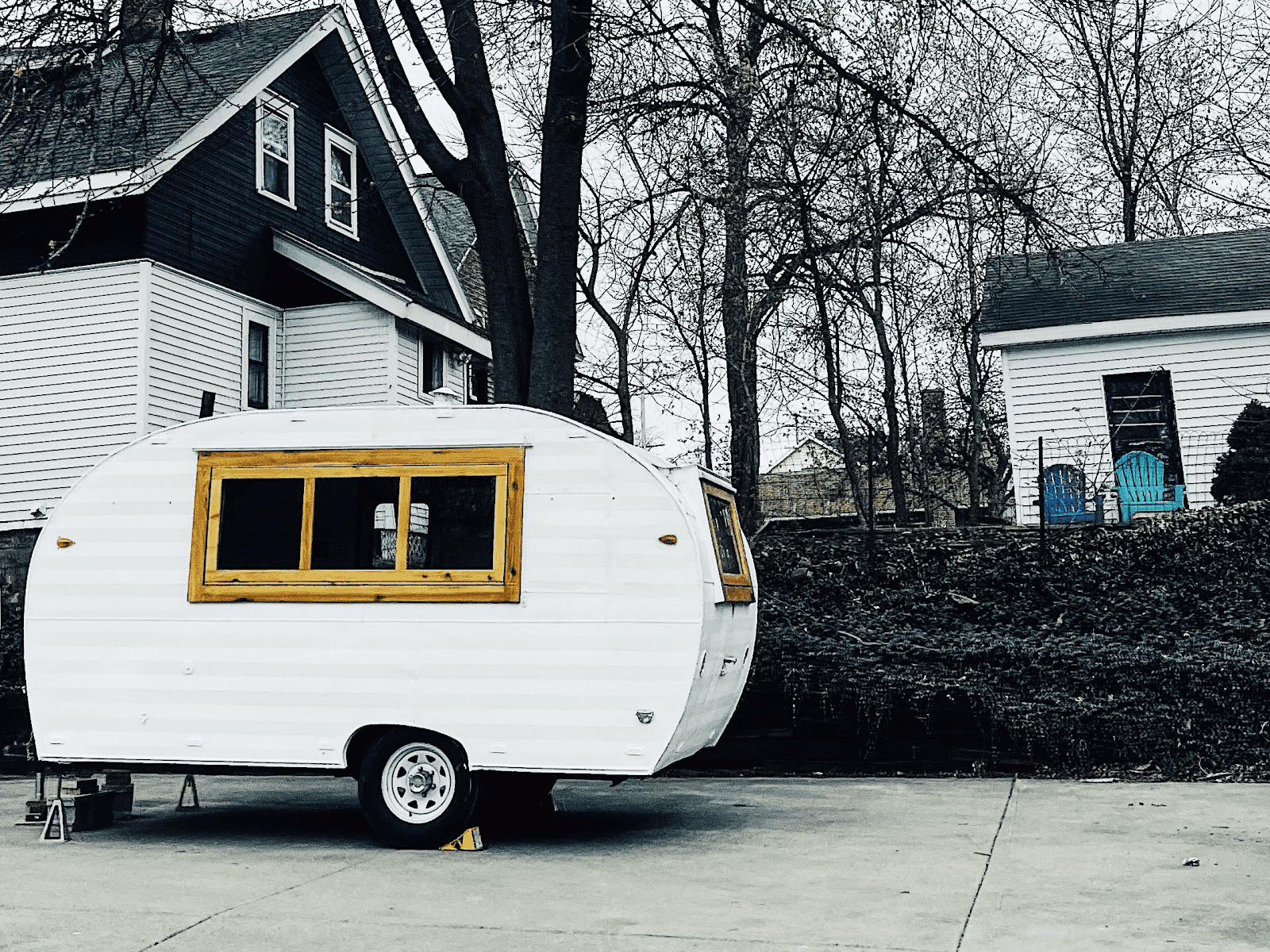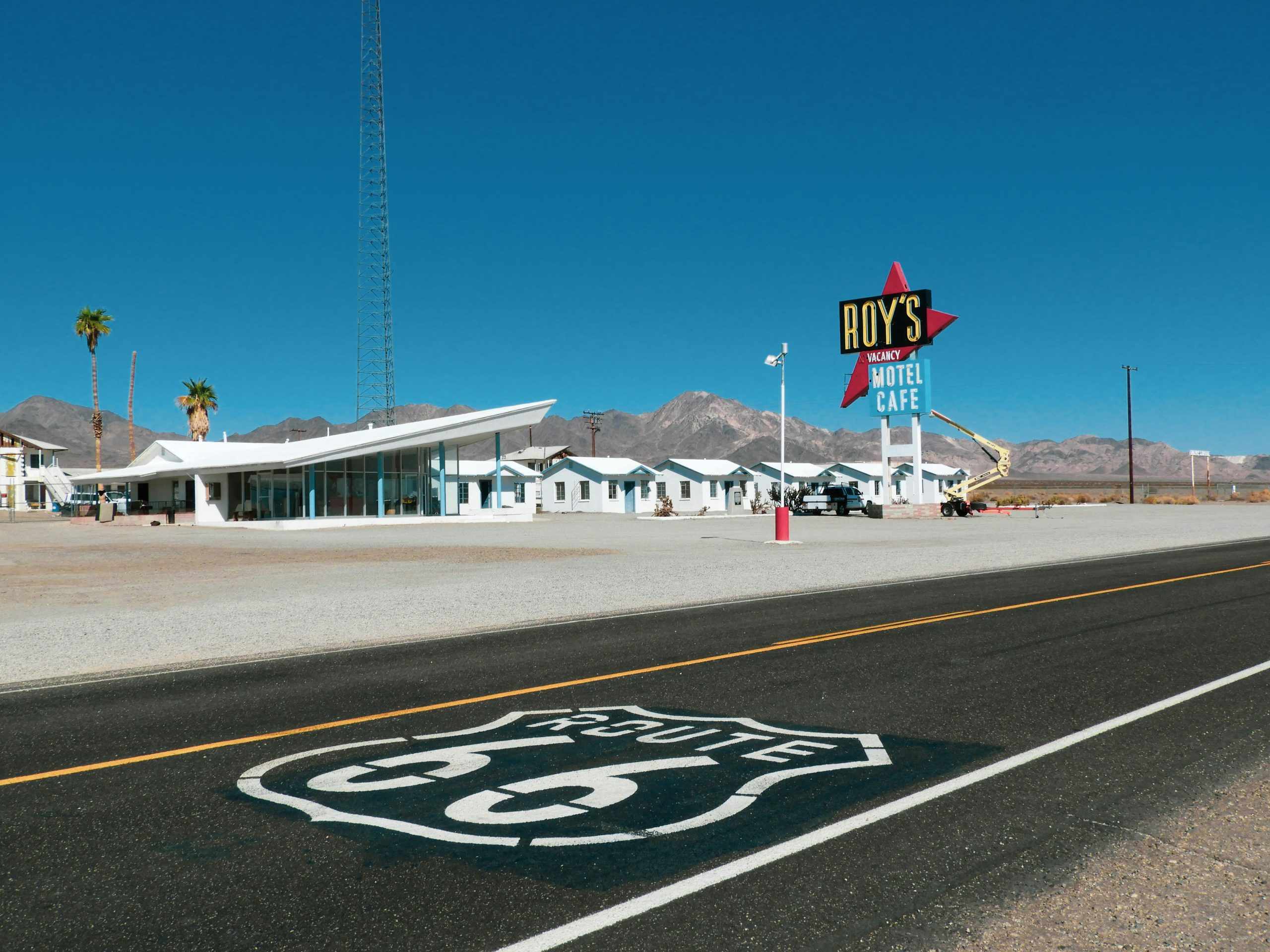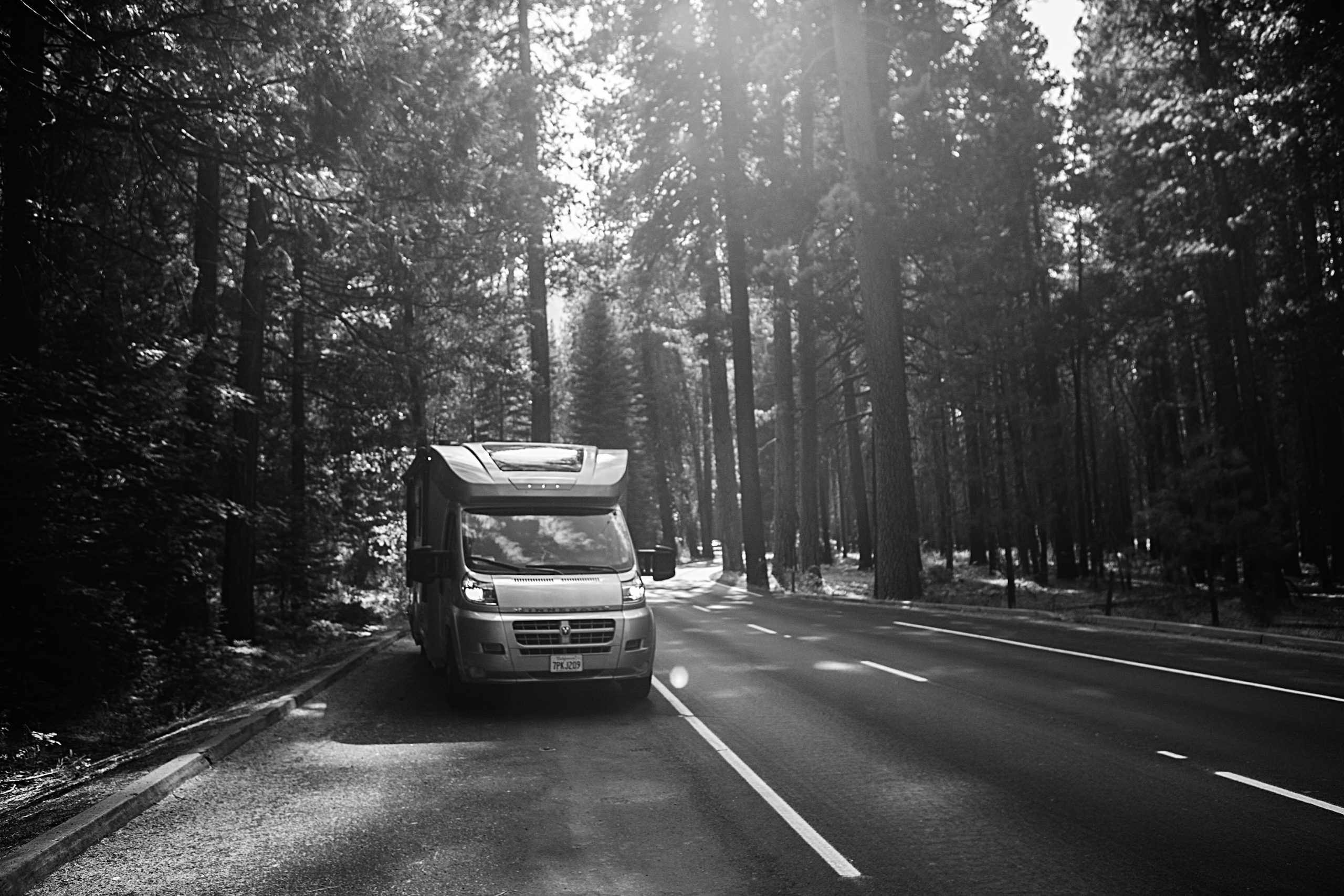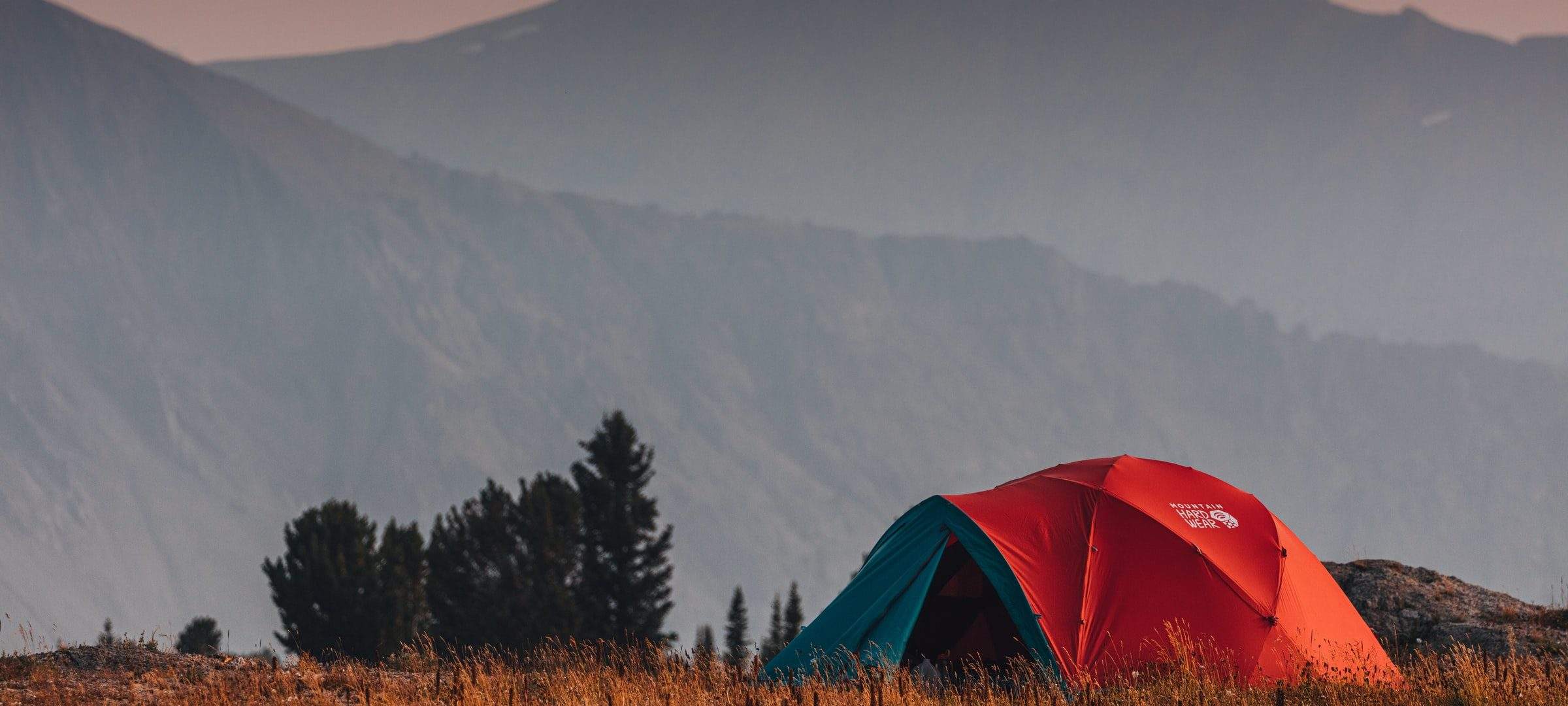If you want to spend time at a relaxing and scenic campground for a few days, you may be torn between two options: RV vs. tent camping. Neither of these options is objectively better than the other — it all comes down to personal preference. But if you’ve never been camping before, you may not be sure which is right for you.
Have no fear! We are here to break down your options. And while we may seem a little biased (we do love RVing), we’ll help you understand which is the best choice for the type of camping that you want to do.
Let’s dive in!
RVs For Rent Near You
RV vs Tent Camping: Ease of Set-Up
If you’re looking for a type of camping with easy set-up, RVs and tents are neck and neck. Of course, it all comes down to what specific tent or RV model you get, but both have options that have simple setups.

Most basic tents can be put together by one or two people in ten minutes. Larger tents may require a little more time or an extra hand or two. As long as you have all of the parts, putting a tent together isn’t usually too hard. Don’t forget to consider everything you’ll need to unpack from your car.
RVs vary a little more in their setup times. If you have a tiny trailer, you’ll have to do things like unhitching and putting down stabilizer jacks. If you’re in a Class B motorhome, you really don’t have to do much at all! A large motorhome may take more time, considering you have to deal with slide-outs, awnings, and more.
The thing that sets the two types of camping apart in terms of setup is packing. With an RV, oftentimes, all you have to do is get in and go! Packing for a tent camping trip is a little more involved, as you have to pack in every piece separately.
Comfort Levels in RVs vs Tents
If you’re looking for comfort, RVs definitely have tents beat.
There’s only so much you can do to make yourself comfortable in a small tent. Sleeping options are usually on the ground or hard cots. There’s no climate control, and only a thin layer of fabric protects you from the elements on the outside. Cooking is done on a separate grill or an open fire. Bathrooms are communal ones provided by the campground or simply behind a tree. Still, many love tent camping for this reason. It’s a great way to get connected to the great outdoors and experience nature up close and personal.

RVs offer varying levels of comfort, but even the most basic options are usually cushier than a tent. RVs come with full amenities like kitchens, beds, dinettes, and sometimes full bathrooms. They also provide more protection from the elements and often include heating or air conditioning. Most RVs also have the capability to be hooked up to electricity, water, and sewer. It’s basically a small home on wheels! If you’re looking for a true glamping experience, you can rent a luxury RV and stay at a resort instead of an ordinary campsite.
RV Security vs Tent Security
If security is a big factor for you, RVs are decidedly much safer than a tent. There are tons of videos out there that explain how to feel safer while tent camping, like the one below from Bicycle Touring Pro.
You could implement these tips or you could just stay in an RV. Most RVs have locking capabilities, meaning that when you turn in for the night, you can lock the front door much like you could your home. On the other hand, a tent is secured with a simple zipper. If thoughts of intruders, creepy crawlers, or curious raccoons keep you up at night, an RV might be the better option.
Even if you feel safe at a campground, RVs are nice because you can keep your camp gear safely stored away if you need to leave for some reason. We think RVs win in terms of security.
Privacy and Protection from Elements
RVs offer significantly more privacy and protection from the elements compared to tents. The solid walls and doors of an RV provide a sense of security and seclusion, shielding you from the prying eyes of other campers. This makes RV camping ideal for those who value personal space, as it allows for separate sleeping areas, private bathrooms, and a more enclosed living environment. In contrast, tents offer less privacy, as sound and movement are easily transmitted through fabric, and there’s often little separation between campers in crowded sites. Additionally, RVs provide superior protection from the weather. With built-in insulation, heating, air conditioning, and solid roofing, RVs keep you comfortable in extreme weather, whether it’s a scorching summer day or a chilly rainy night.
Tents, on the other hand, offer limited protection, leaving campers vulnerable to rain, wind, and fluctuating temperatures, making them less ideal for unpredictable or harsh conditions.
The Driving Experience
Driving an RV and driving to a tent site present distinct experiences, each with its own set of challenges and rewards. When driving an RV, you must navigate a much larger vehicle, requiring more attention to maneuvering in tight spaces, especially on narrower roads or when backing into a campsite. The weight and size of the RV also affect your speed and braking distance, making the journey slower and requiring additional caution. On top of all that, you might need a special vehicle to tow the RV. On the other hand, driving to a tent site typically involves a smaller vehicle, offering more flexibility and ease of navigation.
Tents win this round, for sure!
Campsite Locations
Finding and accessing tent sites is often easier than RV sites, primarily because tent camping requires less space and fewer amenities. Tents can fit in more places, including more remote or smaller campgrounds, where the terrain or space may not be suitable for larger RVs. Because these sites are more abundant, availability is often better. Additionally, getting to a tent site can be simpler since tents don’t require wide, level areas, and the smaller size of the vehicle makes it easier to navigate narrow roads, steep inclines, or tight corners that may be challenging for RVs.
Again, tents win, but only if getting out into the more rural areas matters to you.
Immersion in Nature
Tents offer a unique camping experience that immerses you directly in nature, allowing you to connect with your surroundings in a way that RVs cannot. Sleeping under the open sky with only the fabric of the tent between you and the elements creates an intimate, sensory experience where the sounds of rustling leaves, chirping birds, and crackling campfires fill the air. The simplicity of tent camping encourages a deeper connection to the natural world, as you’re fully exposed to the environment, whether it’s a quiet forest, a lakeside view, or a starry night sky. In contrast, RVs, while providing more comfort and convenience, act as a barrier between you and nature. With solid walls, climate control, and amenities like electricity and running water, an RV keeps you insulated from the elements, reducing the sensory experience of the outdoors and making it easier to remain detached from the natural world around you.
Tent Camping Costs vs RV Costs
Tent camping is usually the cheaper option. Good tents can be as cheap as $40 and primitive campsites without hook-ups are usually cheaper than spots for RVs.
However, RVing is actually a relatively cheap way to travel. You’d be surprised at the deals you can find when RVing. With platforms like Outdoorsy, renting a cushy RV is more affordable than ever. If you want to treat yourself, you can still do so on a budget.
Tent Camping vs RV Camping FAQ
What are the main differences between tent camping and RV camping?
- Tent Camping: Involves setting up a tent on a designated site with minimal amenities. It provides a more immersive experience with nature and requires more physical effort for setup and takedown.
- RV Camping: Involves using a motorized or towable recreational vehicle that offers various amenities like a bed, bathroom, kitchen, and electricity. It offers more comfort and convenience but requires more space and planning for parking and driving.
Which option is better for families or large groups?
- Tent Camping: Tent camping is flexible, and multiple tents can be set up to accommodate large groups. However, it may be less comfortable in bad weather or for extended stays.
- RV Camping: RVs can be ideal for families or large groups, offering more space, private sleeping areas, and amenities like a kitchen and bathroom, making it easier to manage everyone’s needs.
Is tent camping or RV camping more suitable for beginners?
- Tent Camping: May require more initial knowledge of gear and setup, but it’s simpler and easier to learn.
- RV Camping: Is easier for beginners in terms of setup and comfort but requires learning how to handle an RV, manage resources, and navigate larger vehicles.
The verdict: It’s up to you
You have the facts — now it’s time to make a choice. If you still aren’t sure, try both! A few trips with both will help you pick a clear winner.








